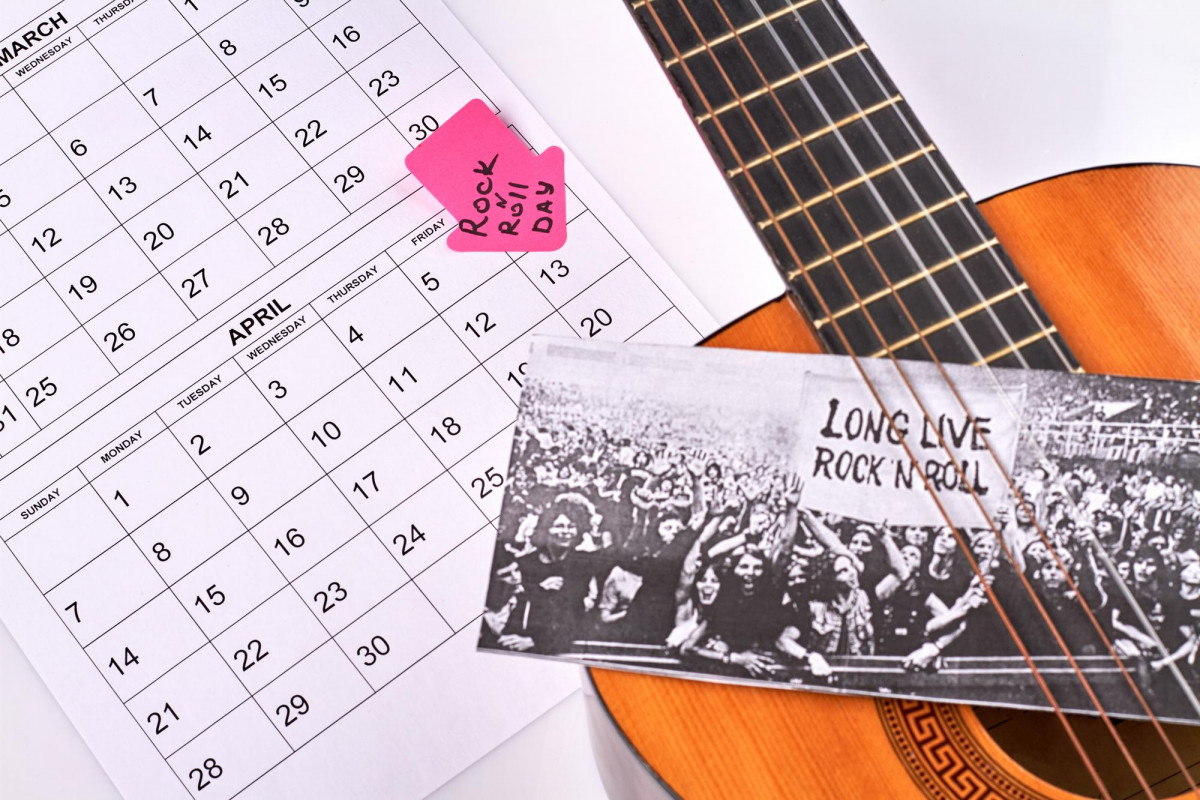The hottest local band has given you two available dates where they could perform at your venue. Your cumbersome calendar software is moving slowly, but you remember that you have an opening on one of them. You book the band, eagerly awaiting their performance. Your calendar finally pops up only to show you already have someone booked on that day. Now, you must decide who to cut and risk damaging that relationship forever…
Occurrences like this are not unusual. Far too often, calendar software is awkward or difficult to use, while an assortment of other programs handle settlements, offers, and expense tracking. With 90% of millennials attending one live event a year, many venues and promoters are (understandably) needing creative solutions to track their live music calendars to avoid snafus like the situation above. Read on to learn how to effectively manage your live music calendar this year.
Set a Budget
Setting a budget isn’t the first thing most people think of when they hear “music calendar;” however, it’s important when deciding who to book. Take the time to set out a clear budget—whether monthly or weekly—to decide who to book for any given month.
Ideally, you’ll be able to book bigger acts each month rather than cramming them all into a few weeks in a row (remember, headliners, are the primary reason festival goers attend a show). By planning and sticking to a budget, you can determine several factors for your calendar, including who can be booked when and how much you can spend.
Create an Effective Events Calendar
An effective events calendar keeps track of more than just dates; it should also host your expenses, keep track of when offers were sent, and show when settlements were paid as well as when they’re due. Although this may seem like a lot of information for one document, it helps you keep everything in place and easily accessible.
Go Digital
The pen-and-paper method that most venue and event owners/planners/promoters used back in the day was great, but no longer sufficient. You’re most likely digital, at least in some aspects. If you’re waiting to take the plunge due to poor results with certain software programs, remember that there are all-in-one solutions that can keep track of everything you need.
By going digital, you open yourself up to a more streamlined process that can make planning events significantly easier than relying on paperwork.
Track Expenses and Settlements
The live-event industry is expected to reach $12 billion by next year, and your expenses and settlements contribute directly to that astronomical figure. While expenses and settlements may not seem like something that needs to be on your events calendar, it can make booking acts significantly easier as you decide exactly what to spend.
As you go digital, you can also connect directly to your ticketing platform to receive monetary updates in real time and calculate expenses as you go. Finally, in regards to settlements, an event calendar can help you figure out both internal and external settlements and even go so far as to help you calculate tax payments to ensure artists are paid correctly.
Keep Track of Offers
You likely have a few big acts that you’re looking to book over the course of the year. By tracking your offers, you can ensure you know exactly who you have sent offers to and what each offer encompasses (both their expenses and yours). This works in your favor for a few reasons.
First, you’re able to see exactly what you offered the band and what they agreed to. If a band does not take you up on an offer, you can possibly see sticking points and renegotiate. Finally, you can see exactly when an offer was sent when wondering if you should send-off a follow-up email for a response.
Collaborate with Your Team
A venue will likely have an assortment of team members who work in some capacity for events—even if it’s relaying messages when the owner or promoter is out of the office. A thorough event calendar is accessible to anyone who may need to view it, offering them a chance to add in notes or make changes as needed.
With some calendar methods, team updates can easily become lost, but a digital calendar will allow everyone to see anyone’s updates in real time.
Leave Wiggle Room
Sometimes acts need to cancel a show. This was evident when we were in the middle of the pandemic and most venues needed to shut down. However, more often than not, a band or venue will have issues with time constraints (e.g. a band is 10 minutes late). This can lead to an audience not feeling like they got an adequate show.
An event calendar will offer a little bit of wiggle room in-between acts, ensuring that if something does happen, there’s still some time for one act to finish their set while another gets prepared to perform.
Include Promotions
Many venues will offer specials throughout the year. From date night dinners and a show to discounted pre-sale tickets, promotions are a valuable marketing tool that make people take the plunge and purchase tickets.
When running promotions, it is integral for everyone who works for a venue to understand what’s happening. This allows employees to fully answer customer’s calls, emails or texts (if you have that feature set up). Keep track of your venue's promotions by marking their beginning and ending dates on your calendar along with information on what it entails (e.g. date night special each Wednesday in February, 10% off the door price for presale tickets, etc.).
Creating an effective event calendar is integral for any venue, especially when booking live music. An effective calendar ensures everyone is on the same page by helping you stay in your budget, tracking expenses and profits, facilitating collaboration, leaving wiggle room between acts and including information on promotions you may be running.
For information on how Prism’s single solution for live music managers can help you and to talk to a representative about a free trial, contact Prism today.































